

Speak Up for the Sea
Our projects
Since the inception of Clean Ocean Project in 2002, we’ve launched initiatives to clean up, inform, and educate about plastic pollution and ocean conservation. Over the years, we’ve collaborated with other organisations on Fuerteventura, across the Canary Islands, and internationally to support actions and help push for positive change.
Through our projects, we not only tackle pollution at sea, but also speak up at a political level to protect coastlines from destruction and exploitation. With communities, experts, and partners, we work toward sustainable alternatives and long-term solutions. We see ourselves as ocean activists and will continue to speak up for the sea and protect what we love.


SURFONOMIC STUDY
A surf break is a renewable and irreplaceable resource that adds great value to a place. This value is often overlooked by non-surfers and decision makers, and many great surf breaks worldwide have already been lost due to coastal development and pollution.
That’s why we initiated a SURFONOMIC study. By showing how renewable resources like waves contribute to sustainable economic growth, we aim to promote protective measures for Fuerteventura’s coastlines. The study will inform management decisions, inspire further Surfonomics research, and support a national database for the growing blue economy and conservation efforts
Fill out the survey

SAVE THE BAY
The planned construction of a large industrial dock in Corralejo would have devastating consequences for the bay and its surrounding ecosystem. This unnecessary and oversized development threatens irreversible damage to the seabed, currents, wave patterns, and the natural habitat of protected species.
Over the past years, we have taken multiple actions, working closely with the local community, experts, and partner organisations to raise awareness and stop this project.
Learn more

Playa Pallet
Playa Pallet is a wooden beach bin made from recycled materials, placed across Fuerteventura to encourage daily beach cleanups. Launched in 2018, the project has been successful in keeping coastlines clean and preventing waste from reentering the ocean. Each bin helps remove about 1 ton of waste annually, and has helped encourage and nudge local beachgoers to take action and be part of the solution.
Clean the beach with Playa Pallet

Clean Business
Takeaway food and drink litter make up almost half of the human-made waste in the ocean. Used for a few minutes, single-use bags, plastic bottles, food containers and food wrappers are the four most widespread items polluting our seas. This is a sad result of a throw away mentality that needs to change. That is why we started Clean Business, a certification given to companies committed to reduce their plastic footprint and make sustainability part of the menu.
A Clean Business is one that aims to eliminate single-use plastic and chooses sustainability over convenience. This means No Styrofoam , No take away single-use plastic, no plastic bags, No plastic straws, No beverages in plastic bottles and a general reduction on the daily waste. Become part of the change!
See who is a clean business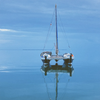

Women and the Wind / Clean Ocean Project goes sailing
Our Project Coordinator, Lærke Heilmann, joined Captain Kiana Weltzien and filmmaker Alizé Jireh on a 30-day voyage across the North Atlantic aboard the wooden catamaran Mara Noka.
This became the documentary Women & the Wind, a story that follows their journey and highlights the persistent presence of plastic debris, encountered daily during the crossing. The film captures both the environmental challenges and the personal transformations of the crew, offering an intimate look at women facing nature’s vastness and their own resilience.
Watch the documentary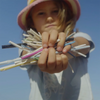

Stop sucking. The Clean Straw Project.
Plastic straws are among the top five most common wastes on Spanish beaches. Greenpeace reports that Spain uses around 13 million straws daily, the highest in Europe. These straws are used for minutes but can take up to 500 years to decompose, often ending up in oceans.
With The Clean Straw Project, we created a simple approach to target this problem locally. We visited local bars and restaurants, asking them to sign a compromise contract with the environment. By signing the contract, they promised to never use plastic straws again. We informed them about alternatives like reusable bamboo straws, paper straws, or simply no straws. All the places that signed our contract received a wooden sign stating that they didn’t offer plastic straws. This way, customers were informed and the establishment made a statement too.
If an establishment had plastic straws in stock, we offered to collect all of them and send them to a recycling plant that turned them into furniture.
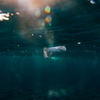

Plastic bag ban on Fuerteventura
Every year, millions of plastic bags end up polluting beaches and oceans around the world. Though used briefly, they can take hundreds of years to break down, causing lasting harm to marine life and ecosystems.
To tackle this problem locally on Fuerteventura, we launched the “Shop Without Plastic Bags” campaign. We contacted local shops and asked them to sign a pledge to stop offering plastic bags. In return, we collected and recycled their existing stock.
Shops that signed the agreement received a sticker identifying them as trusted green partners, making it easy for customers to support environmentally friendly businesses.
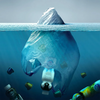

Planet or Plastic?
In a world where “green” and “sustainable” have become the new black, it can be hard to tell good intentions from greenwashing. Big companies are eager to show their engagement in the fight against climate change and plastic pollution, but is it just to green-wash their hands to the public? See our open letter about Neslés collaboration with National Geographic.
Read the open letter

Clean Coffee Project
Buy it, consume it and throw it away. Single-used coffee capsules are the latest lifestyle product. They suit our laziness and single-use mentality. A huge problem. Because the production is a tremendous waste of valuable resources and the mix of even toxic materials like plastic and aluminium makes recycling difficult, expensive and a waste of energy. In the end most of the capsules are thrown in the general trash, than pile up on the landfills and finally end up in the ocean. With our Clean Coffee Project campaign we want inform about this problem and force the European Government to implement a deposit system for single-use coffee capsules in the European Union.
Clean Coffee Project Website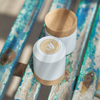

Clean Coffee Mug
Wherever we go, a coffee-to-go cup goes with us. It’s a lifestyle and a symbol of our throw-away culture, which heavily impacts the environment. In 2015, Germany discarded 2.8 billion single-use paper and plastic coffee cups. The UK’s numbers are similar, imagine the global scale.
These disposable cups waste valuable resources, made from virgin materials, and are nearly impossible to recycle due to plastic coatings and lids. That’s why we developed a 100% plastic-free reusable coffee cup, collaborating with the Eco Design Academy in Cologne, experts in design and sustainability.
Buy the mug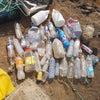

Retorna
Every day 30 million drinking containers are being consumed in Spain, sadly only a very small amount gets recycled. All this waste is polluting our environment and washing up on our beaches. It is proven that a deposit and return system for drinking containers is the best solution to this massive problem. By reusing materials we save resources, money, and best of all - make sure that plastic bottles and cans don’t end up in the ocean.
We are working together with the Spanish non-profit organization Retorna whose goal is to implement a deposit system. We work on both a political level and joining campaigns to amplify the message. We need action to create a CLEAN PLANET!
Learn more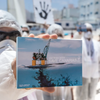

Save Canarias
It all started with bad news: REPSOL, a spanish oil giant planned to drill for oil close to Fuerteventura and Lancerote. We couldnt believe it. After a short moment of numbness we took action and initiated a petition page to collect signatures against the ignorance of politicians and the audacious behaviour of REPSOL.
After one month we already passed the little milestone of 200.000 signatures and on the 24th of March 2012 the Canary Islands has seen the biggest demonstration ever. Ten thousends of local people where on the streets of Puerto del Rosario/Fuerteventura and Arrecife/Lancerote. They had one clear message: NO OIL ON CANARY ISLANDS!
In 2012 more than 300 environmental groups joined the fight against the oil drilling. And three years later REPSOL withdraw. The next goal is to protect the area by declaring it a national biosphere reserve.